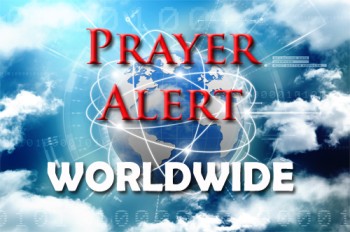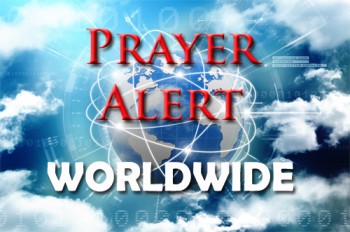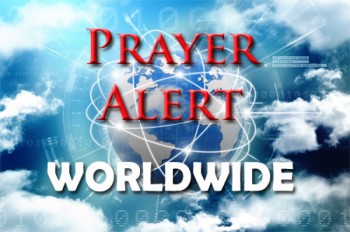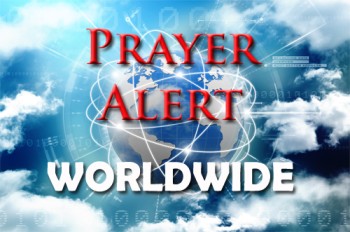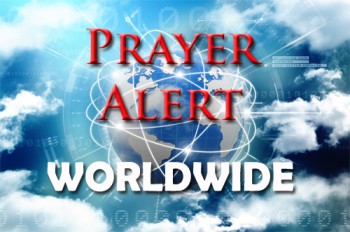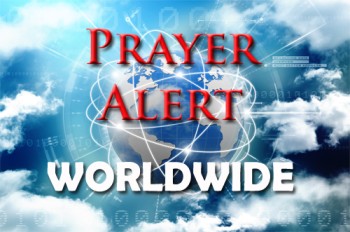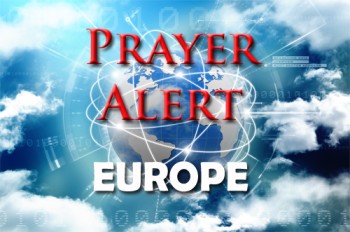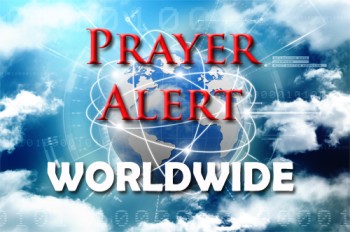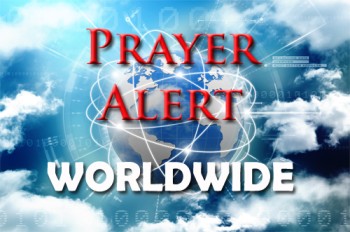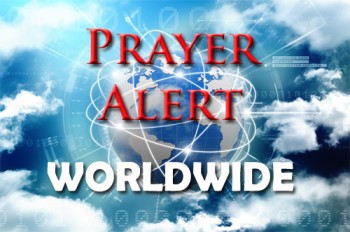Displaying items by tag: Middle East
Israel / Lebanon: UN peacekeepers ‘more crucial than ever’
UN peacekeepers on the Israeli-Lebanese border are now more crucial than ever, according to their chief Jean-Pierre Lacroix. Cross-border fire between Israel and Hezbollah has increased, raising fears of a broader regional conflict. This concern grew following the recent killings of a top Hamas leader in Iran and a Hezbollah commander in Beirut. Lacroix emphasised UNIFIL's vital role as the only liaison between Israeli and Lebanese sides, helping to prevent misunderstandings and unintended escalations. UNIFIL, with 10,000 troops in southern Lebanon, conducts regular patrols and facilitates humanitarian efforts. Lacroix stated that peacekeepers would remain unless their mission becomes untenable or security threats become severe. He said a Gaza ceasefire is key to de-escalation on the Israeli-Lebanon border, to prevent further casualties and destruction. Meanwhile, several European countries have urged their nationals to leave Lebanon because of the increased threat of war: see
Top Hamas leader killed
On 31 July Hamas political leader Ismail Haniyeh, along with his bodyguard, was killed in an airstrike in Iran, an act labelled a ‘severe escalation’ by the Palestinian terror group. His death came hours after he attended a swearing-in ceremony for new president Masoud Pezeshkian. Pezeshkian vowed to defend Iran's integrity and retaliate against the perpetrators. This assassination, attributed to Israel, follows the killing of Hezbollah’s top military leader in Beirut; Israel claimed that he was responsible for a rocket attack on 27 July which killed twelve people, mainly children. Haniyeh, based in Qatar and the face of Hamas’ international diplomacy, was the highest-ranking official killed since the conflict began; his three sons have also been killed.
USA: Netanyahu tells Congress Israel’s ‘fight is your fight’ amid boycotts and protests
Israeli Prime Minister Benjamin Netanyahu delivered a fiery speech to a joint session of the US Congress, lauding American support for Israel’s war in Gaza while offering little on ceasefire negotiations. He emphasized that Israel's fight against its enemies is also America’s fight, as House and Senate Republicans applauded. Meanwhile, the speech was boycotted by dozens of Democratic lawmakers and protested by thousands outside the Capitol, leading to police using pepper spray. Netanyahu's address, which did not provide new details on negotiations for a ceasefire with Hamas, focused on a "total victory" approach. Prime Minister Netanyahu dismissed concerns about civilian casualties in Gaza and denied blocking food aid. He called on the US to expedite military aid to Israel, praising both President Joe Biden and former President Donald Trump for their support. Democratic lawmakers, including Nancy Pelosi and Bernie Sanders, criticized Netanyahu's address, with Pelosi condemning the lack of emphasis on a ceasefire. The speech follows a significant conflict between Israel and Hamas, with ongoing efforts to secure the release of Israeli hostages. Biden and Netanyahu are set to discuss these issues further in an upcoming meeting.
Gaza: at least fifty killed by Israeli airstrikes
At least fifty Palestinians have been killed and many wounded in a series of Israeli airstrikes on Gaza, according to the Hamas-run health ministry. The strikes targeted areas in south and central Gaza, including the humanitarian zone of al-Mawasi and a UN-run school in a refugee camp. The Israeli military (IDF) claimed the strikes targeted Hamas fighters, and it accused Hamas of using civilians as human shields. It also says that half of Hamas’s military leaders and approximately 14,000 ‘terrorists’ have been killed in the last nine months. Since October, over 38,000 people have died in Gaza, with 14,680 identified as children, women, and elderly. The violence has resulted in significant civilian suffering and displacement, with both sides continuing hostilities. In a recent BBC interview, a mother in Gaza has described how her adult son with Down’s Syndrome died after being attacked by an IDF dog: see
Gaza: Hamas faces growing public dissent
A video of a bloodied academic doctor openly criticising Hamas highlights a shift in Gaza. Filmed after an Israeli operation, and illustrating growing frustration, the video has gone viral. Critics accuse Hamas of endangering civilians by hiding hostages in populated areas and launching rockets from civilian zones. Some Gazans are now calling for a ceasefire with Israel, and even within Hamas's ranks discontent is rising. The group's longstanding control is weakening, with criminal gangs and chaos increasing. Despite ongoing support from some, many are now criticising Hamas for the war's devastation and their lack of preparedness. The situation remains complex, with a significant portion of the population still blaming Israel and its allies. The internal battle for public opinion within Gaza is intensifying, with Hamas sensitive to criticism and actively managing its image on social media.
Iran: Khamenei warns reformist presidential candidate
Ayatollah Ali Khamenei has issued a veiled warning to reformist presidential candidate Masoud Pezeshkian, criticising those who believe progress depends on the USA. Pezeshkian supports restoring the 2015 nuclear deal with world powers, unlike his hard-line opponents who demand terms favouring Iran. Khamenei has also urged high voter turnout for the election on 28 June, which analysts say could benefit Pezeshkian. There was a record low turnout in the parliamentary elections in March, and voters have expressed widespread apathy as Iran faces an economy crushed by Western sanctions and after widespread anti-government protests in recent years. Pezeshkian, previously unknown to the public, has garnered significant support. However, hard-liners remain critical, especially after the collapse of the nuclear deal in 2018. If no candidate wins over 50% of the vote, a runoff may be required.
Cyprus / Israel / Lebanon: Hezbollah leader threatens wider conflict
Hezbollah leader Sayyed Hassan Nasrallah has warned that no place in Israel would be safe if a full-scale war erupts between the two foes, also threatening Cyprus and other Mediterranean regions. Hezbollah has released drone footage of sensitive Israeli military sites; Nasrallah says that it has a ‘bank of targets’ for precision strikes, and Israel must prepare for attacks by land, air, and sea. He also threatened Cyprus, accusing it of aiding Israel with its airports and bases for military exercises. There was no immediate response from Cypriot authorities; Cyprus has historically allowed Israel to use its airspace for drills, but not its land or bases. In another development, Benjamin Netanyahu has dissolved his war cabinet after two of his opponents resigned from it: see
Hezbollah fires hundreds of rockets after a senior commander is killed
Hundreds of rockets were fired from Lebanon towards northern Israel on 12 June, hours after an Israeli airstrike which killed a senior Hezbollah commander. The Israeli military reported detecting about 215 projectiles, with some intercepted and several causing fires. The death of the commander, Hajj Abu Taleb, has intensified clashes along the border, with Hezbollah using more advanced weaponry and Israeli airstrikes penetrating deeper into Lebanon. Over 400 people have been killed in Israeli airstrikes in Lebanon, including more than seventy civilians. On the Israeli side, fifteen soldiers and ten civilians have died since the conflict began. Meanwhile, Antony Blinken stated that mediators are working to finalise a cease-fire deal after Hamas proposed amendments to a US-backed proposal which aims to ensure a permanent ceasefire and the complete withdrawal of Israeli troops from Gaza. The proposal, announced by Joe Biden, includes these provisions, but Hamas remains sceptical about Israel’s commitment to implementing the terms.
Kuwait: at least fifty dead after huge fire
A fire in a residential building in Mangaf has claimed at least fifty lives, mostly foreign workers, including many Indian nationals. The blaze, which broke out early on 12 June, engulfed the building in thick smoke; many of the casualties. The deputy prime minister blamed property owners' greed and building standard violations for the tragedy. The building housed 196 workers: a senior police officer said that warnings were often issued about overcrowding in this type of accommodation.. Dozens were rescued, but many deaths resulted from smoke inhalation. There were thirty Indian nationals among the deceased; other victims were from Pakistan, Bangladesh, the Philippines, and Nepal. However, some bodies were burned beyond recognition and have not yet been identified. Indian officials visited the injured, and Narendra Modi sent a message of condolence to the victims’ families. Kuwait's reliance on foreign workers, particularly in construction and domestic sectors, has often raised human rights concerns about their living conditions.
Gaza: Biden and Netanyahu equally desperate?
Joe Biden has proposed a ceasefire plan for Gaza comprising three stages: negotiating a captive exchange, achieving a permanent cessation of hostilities, and rebuilding homes and public facilities. He has urged immediate acceptance of the deal by Israel and Hamas, linking his reputation to its success. While Hamas responded positively, Benjamin Netanyahu’s government remains ambiguous. Biden has claimed Hamas's military capabilities are diminished, suggesting Israel can now withdraw from Gaza. His absence from the Ukraine peace summit (see Europe article) and his focus on Gaza reflect his desperation to improve his political standing amid declining approval. Netanyahu also faces pressure, risking imprisonment for corruption and needing to appease various factions. The ceasefire plan faces numerous obstacles; the complex dynamics and divergent interests involved make achieving a lasting resolution challenging. Meanwhile, Israel has confirmed the deaths of four more hostages taken by Hamas on 7 October: see
